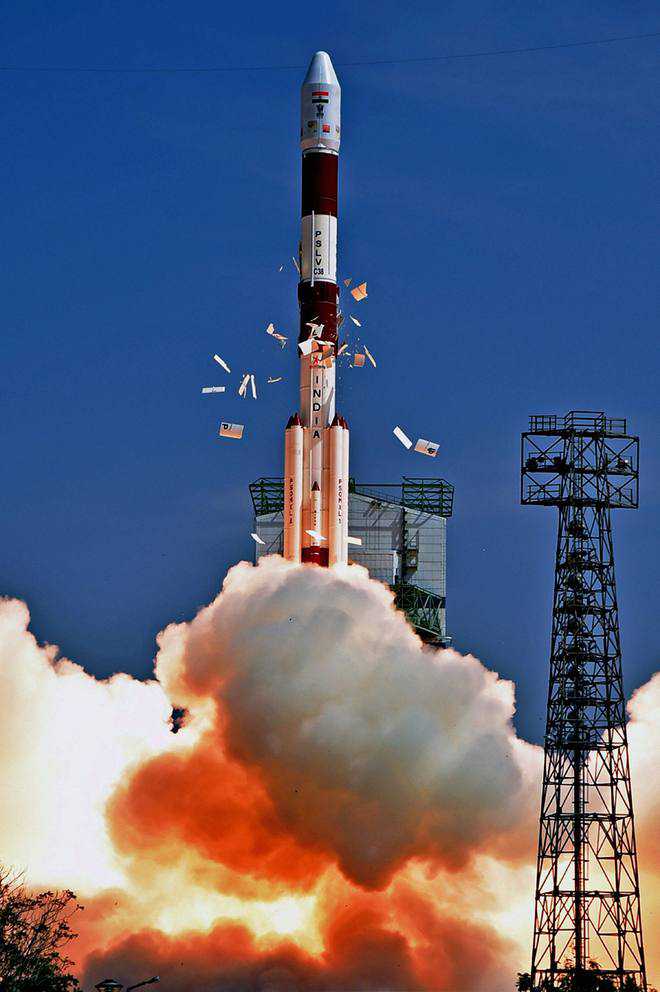
ISRO’s PSLV C38, carrying Cartosat-2 Series and 30 other satellites, lifts off Satish Dhawan Space Center in Sriharikota on Friday. PTI
Sriharikota (AP), June 23
India today successfully put into orbit a satellite that will boost its military surveillance capabilities along with 30 other tiny satellites — all but one of them foreign — from a single rocket in yet another milestone for its low-cost space programme.The Polar Satellite Launch Vehicle (PSLV-C38) of the Indian Space Research Organisation (ISRO) in its 40th flight lifted off the first launch pad at Satish Dhawan Space Centre at 9.29 am and injected the 31 satellites into orbit 27 minutes after lift-off, amid applause from scientists.Dubbed as a “smart eye in the sky”, the 712-kg Cartosat-2 series earth observation spacecraft launched by the 44.4 metre-tall rocket as its primary payload is an advanced remote sensing satellite that is expected to give defence surveillance a leg-up. The 31 satellites together weighed 955 kg.Today’s mission was the second highest number of satellites to be launched by the ISRO using a single rocket. On February 15, the PSLV-C37 mission scripted history by launching 104 satellites into orbit at one go. Of these, 101 satellites were from foreign countries.With the launch of the third spacecraft in the Cartosat-2 series, the images sent by the dedicated satellite for defence forces are expected to become sharper and wider. The previous satellite in the series had a resolution of up to 0.8 metres and the images it took over India’s neighbourhood had helped carry out surgical strikes on terror launch pads across the LoC last year, said ISRO sources. — PTI
The payload
- At 712-kg, Cartosat-2 is an advanced remote sensing satellite with a resolution of up to 0.6 m. The previous satellite in the series had a resolution of up to 0.8 m and was used by defence forces during surgical strikes across the LoC last year
- NIUSAT, a nano-satellite developed by Noorul Islam University in Tamil Nadu, will provide multi-spectral imagery for agricultural crop monitoring and disaster management support applications
- The other 29 nano-satellites put into the orbit are from 14 countries, including France, Germany, Italy, Japan, the UK and the US
